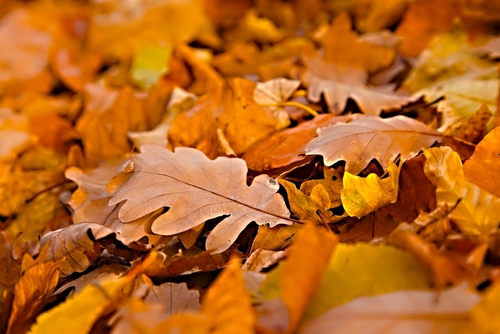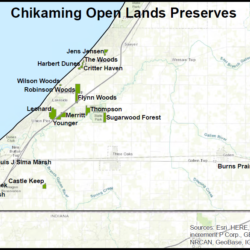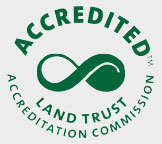
Recycle Your Fallen Leaves
Posted on November 6, 2014
Now that it’s November, it looks like about 80% of the leaves have fallen. In our part of Michigan that’s a lot of leaves! Of course, other than a decent form of exercise, most of us dread raking. But, you don't have to if you look at your leaves as a free gift from nature. Leaves don't have to end up in trash bags or burn piles. Instead, you can use them to help your garden grow or to beautify your home in an environmentally friendly way.
Composting
Composting is an effective and easy way to use fallen leaves as organic fertilizer. Composting helps you create soil rich with minerals so that you can look forward to a healthy spring landscape. So, where to start? You need to have nitrogen-containing ingredients like grass clippings as well as materials high in carbon, like your dry leaves.
Shredded leaves will break down faster than whole leaves and are easier to mix into a compost pile. You can shred your leaves simply by running over them with your lawn mower. Then, throw all your leaves into your compost pile with grass clippings and mix them in well with a shovel or rake so that the newer leaves are buried under the older composted material. Continue to mix and turn over the pile every four to five days to ensure an even breakdown of material into mineral-enriched soil. Cover the compost pile with a tarp during late autumn and winter to seal heat in and keep moisture out. Your compost should be ready for use in about two months. You'll know it’s ready when it turns a dark brown color and the original ingredients are unrecognizable. It should smell earthy. At that point, you can dig finished compost into your soil to help your garden grow.
Mulching
Mulch acts as a protective covering that goes on top of the soil and in between plants. It functions to reduce weeds and maintain moisture. Many people buy mulch, but you can easily make your own. Collect the leaves from your lawn and chop them up with your lawnmower. Add some woodchips and grass clippings for good measure. Now, you can plant your flowers and garden plants in the spring and place the leaf mulch on top of the soil to provide easy, organic protection.
If you are unable to get rid of the majority of your leaves by composting or mulching, check to see if your city or county provides special assistance with leaf disposal. You can also call your garbage-collection service to see if they have special collection days for yard waste.
How are you getting rid of your fallen leaves? Post your tips or a photo on our Facebook page and let us know!




















